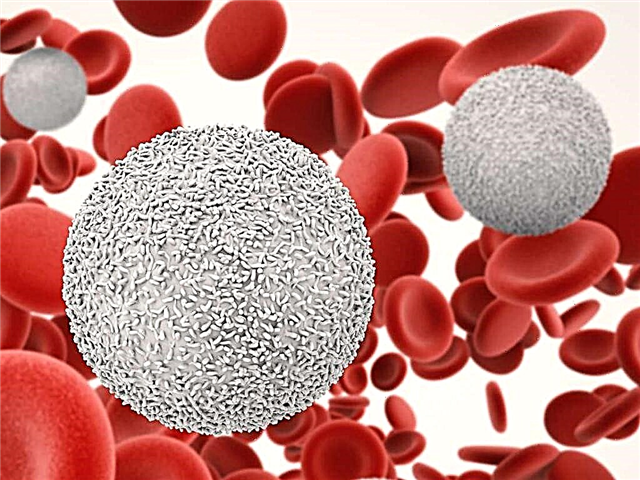A problem like a nervous tic is quite common in children. When this happens, parents get worried. They forbid older children to blink their eyes too often, which does not work very well. A nervous tic in an infant, frequent blinking of the eyes and does cause panic. How justified is it?

Nervous tic in a baby
What is a nervous tic
A tick is an obsessive movement that happens by itself. There are many types of such violations: facial, vocal, and so on. In some cases, they can acquire a pathological character, but they often occur in healthy children.
In infants, tics are less common than in older children. The highest prevalence is observed in boys and girls aged 4 to 6 years. At 10-11 months, the symptom is rare. This is caused by the peculiarities of the development of the baby's nervous system.
Important! By the age of 7-8, the formation of the subcortical parts of the brain ends, and the frequency of tics decreases sharply.
Diagnosis of nerve tics
It is possible to determine the presence of a nervous tic of the eye with the naked eye. If you need to establish the exact cause of the disease, you should consult a doctor. First, a parent goes to a pediatrician, then takes a referral for a consultation with a pediatric neurologist.

Sick baby
Depending on the age of the baby and his condition, additional consultation with a psychologist, psychotherapist or psychiatrist may be required. If the baby often claps his eyes, the appointment of examinations is possible: EEG of the brain and biochemical blood test.
Main manifestations
The symptom is expressed in frequent blinking or twitching of the eyelid, and may spread to one or two eyes. Eyebrows may also twitch in a newborn baby or older child. The baby can raise / lower the eyelid both on its own and together with another.
Classification
Ticks are divided into primary and secondary. The latter are caused by some kind of disease. In turn, the primary manifest themselves.

Nervous disorders in young children
All ticks are divided into:
- Facial. The muscles responsible for the movements of the nose and face twitch. The symptom may also include the mouth. A tick can appear on one side or on both. Eye tics in a child fall into this category.
- Vocal. The child makes involuntary sounds. This type is further divided into two. Vocal tics can be simple or complex. In the first case, the baby makes primitive sounds, while in the second - complex words and structures. In some cases, it can reach coprolalia - shouting obscene expressions. It is very common in Tourette's syndrome - a rare hereditary disease.
- Respiratory. Violations are manifested in obsessive coughing, loud breathing.
- Opercular. In this case, the chewing muscles are involved. For example, a person can click their tongue, teeth, chomp, and so on.
- Manual. The muscles of the arms are involved. A person can rotate his hands, rub his palms, snapping his fingers.
- Focal. Complex ticks involving several at once. For example, the eye can twitch, the head and limbs move at the same time.
Causes of eye tics
Nervous eye tics in a child can occur for the following reasons:
- Biological. In this case, the symptom is provoked by infectious and viral diseases. For example, a common reason why a child's eye twitches is a streptococcal infection. If the immune system fails, the pathogen can affect the nervous system. A hereditary factor plays an important role in the development of tics. If the parents have had tics before, then there is a high probability that their child may also have them. In some cases, the eyes may start twitching due to ARVI.
- Psychological. It is unlikely that the baby's eye twitches for this reason. Since the condition occurs in the overwhelming majority of cases in older children, this category of causes is the most likely. The child jerks his eyes after conflicts with peers, due to a lack of love from the parents, severe fear or mental stress. Therefore, when the baby is still a baby by age, parents should already give him enough attention. This is the guarantee of his health and successful development in the future.
Doctor Komarovsky about eye tics
Dr. Komarovsky says that the most common reason for a baby's muscle twitching is psychological problems.

Recovered baby
He prohibits doing nothing, attributing the symptom to the usual grimacing, since there is a risk of starting a disease, the treatment of which is much easier in the early stages.
Important! A well-known doctor advises to first monitor the baby's condition. If the twitching lasts longer than 2-3 days, then it is better to consult a neurologist and psychotherapist. Also, the doctor focuses on special attention to create a favorable home atmosphere that eliminates nervousness.
How to cure a child
If the baby begins to twitch any of the muscles, the only way to help him is to see a doctor. He will establish if there is any pathology, and select the appropriate medicine. Sometimes muscles can twitch for serious enough reasons that require immediate medical attention.
For older children, a special role should be given to psychological examination, on the basis of which the methods of therapy are selected.
A key treatment for tics is through systemic therapy. In many ways, its effectiveness is influenced by the actions of parents and their willingness to follow the recommendations of specialists. Treatment of the disorder is based on an individual approach.
Prevention of the disease
If the disease is caused by genetic causes, then prevention is difficult. It is only possible to determine the risk of certain hereditary diseases. Since the most common cause of eye tics in children is psychological factors, first of all, parents should take care of their child, not to allow unnecessary unproductive stress.
In general, eye twitching in young children is not a terrible problem, which in most cases goes away on its own. If the child feels normal, plays, eats well and does not give any other reasons for concern, then you should not worry.
If the baby shows these symptoms for 3 or more days, then it is better to show him to the doctor to prevent really dangerous conditions. The doctor will select the appropriate treatment, then the prognosis is favorable and the condition is normalized.



